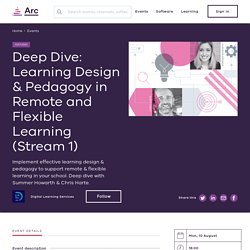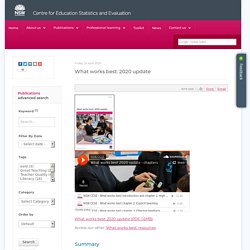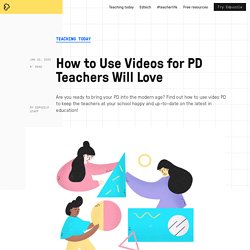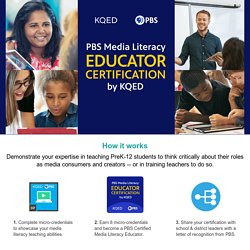

Learning Design & Pedagogy in Remote and Flexible Learning. Deep Dive: Learning Design & Pedagogy in Remote and Flexible Learning (Stream 1) Join us for session 2 of this three-part series.

Please note this session will run from 3.45 - 5.15 pm. Please note that if you registered for the first session held on Tuesday Aug 4th you are automatically enrolled for all three sessions, and you DO NOT need to re-register. In this deep dive professional learning sequence, we will explore and share effective learning design and pedagogy that supports remote and flexible learning, contextualised to your school. In this professional learning series, you will: Session 1: Explore the Architecture of a Learning ExperienceSession 2: Re-imagine formative and summative assessment for learning growth.
Three sessions will be held in as part of this learning series: Tuesday August 4th (recording is available)Tuesday August 11thTuesday August 18th Registrants are expected to attend all three sessions. About the facilitators Summer Howarth Chris Harte. What works best: 2020 update. What works best: 2020 update (PDF, 1.6MB) What works best: 2020 update MyPL course What works best in practice What works best toolkit What works best conversation with Coonabarabran High School What works best on the Every Student podcast This paper is an update to our 2014 publication.

The eight themes identified as likely to make the biggest difference to our students are: 1. Teachers’ beliefs about their students influence how they teach and interact with them. 2. Explicit teaching practices involve teachers clearly showing students what to do and how to do it, rather than having students discover that information themselves. 3. Effective feedback provides students with relevant, explicit, ongoing, constructive and actionable information about their performance against learning outcomes from the syllabus. 4. Edpuzzle. How to Use Videos for PD Teachers Will Love. Do you know how much your school district spends every year on professional development?

The answer may shock you! In the United States alone, a whopping $18 billion a year is spent on professional development, but sadly, many of the country’s nearly 4 million teachers don’t find it useful or educational. So what’s the problem with traditional PD? Just like with students, it all boils down to how you deliver your content. First, consider the format of your PD: is the trainer using the standard lecture model? When asked on Twitter for their worst PD experiences, the vast majority of teachers cited the horrors of attending a PD where the presenter read the slides of a PowerPoint presentation. By using video PD, you can dramatically reduce your school’s budget for professional development and increase teacher engagement… worth a try, right? Here’s how to get started with video professional development to keep teachers happy, entertained and informed.
Step 1: Find Your Resources Edpuzzle. Responsible Decision-Making - Friday Institute at NC State Application. Webinars — PSLN. Media Literacy Educator Certification. Need to develop your skills first?

KQED Teach and PBS TeacherLine offer free online courses that help you build necessary skills in preparation for completing micro-credentials. Finding & Evaluating Information Audio Essentials: Basics of Recording PBS Certified Media Literacy Educators have demonstrated mastery with evaluating, creating, and sharing media effectively to support their own learningdesigning and implementing instruction and assessing student learning of these same skills Once certified, you'll receive a letter of recognition from PBS to share with your school and district leaders. Certification is free. Earn eight media literacy micro-credentials and automatically become a PBS Certified Media Literacy Educator. 1. 2. 3. Demonstrate your expertise in teaching PreK-12 students to think critically about their roles as media consumers and creators -- or in training teachers to do so. Evaluating Online Information Critically Analyzing Media Creating a Code of Conduct.
Teaching for Global Competence. Transform Teaching. Transform Learning. Transform the World. For over a decade, the Center for Global Education at Asia Society has been a leader in global competence education. With initial investments from the Gates Foundation and Carnegie Corporation, and in partnership with Harvard University and Stanford University, among others, the Center for Global Education has developed the preeminent educator training program on educating for global competence. While previously only accessible to the Center for Global Education, this online program powered by EdPlus at Arizona State University now brings this critical and relevant content to any educator around the world. The Center for Global Education is now offering certificate programs in the following areas: The Essentials of Global Competence, Project-Based Learning in a Global Classroom, and Classroom Assessment of Global Competence.
Enroll in the courses How it works It's easy! Earn certificates Prepare learners. Courses Archive - Cool Australia Professional Development.